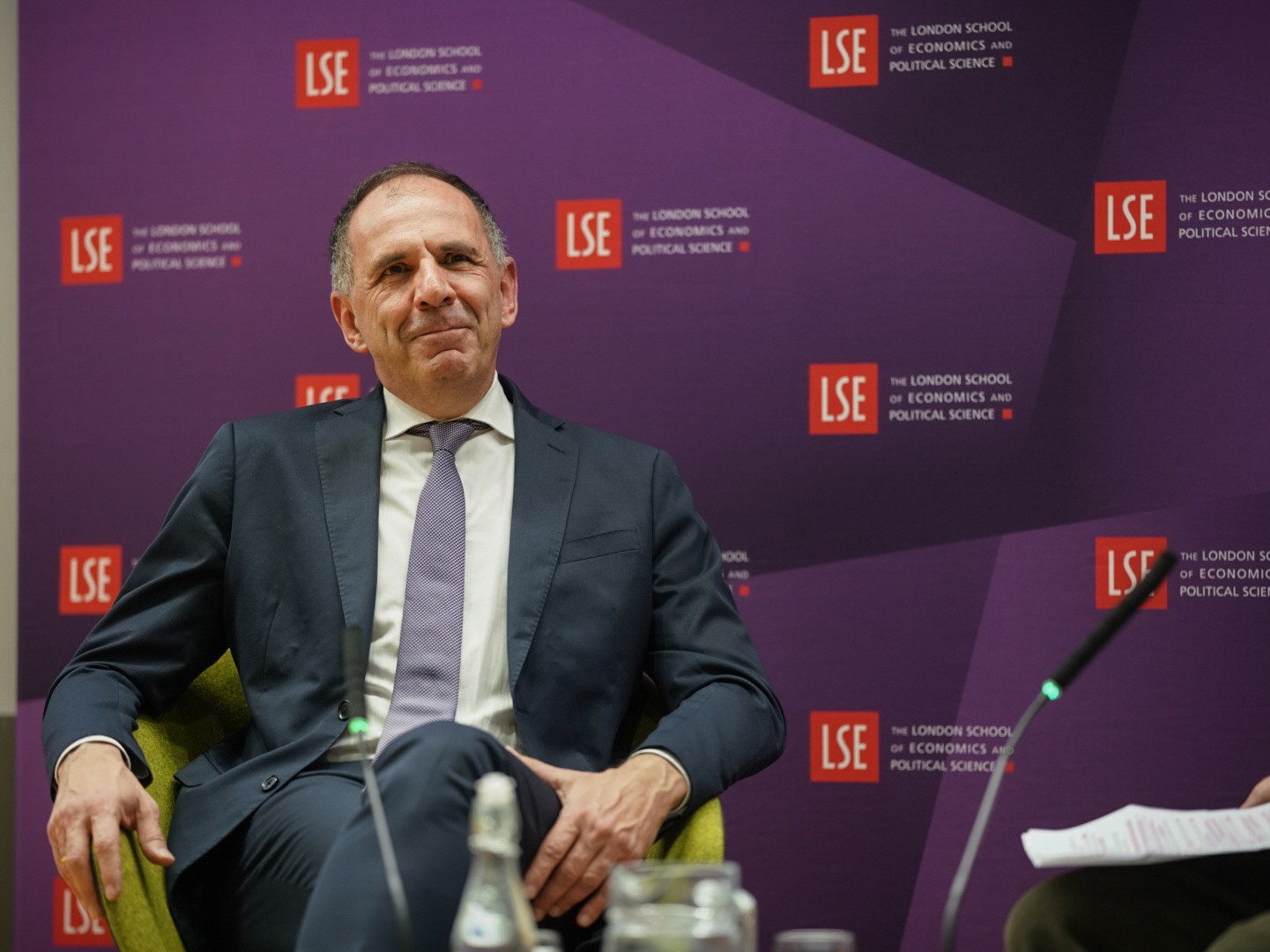
Professor George Gerapetritis, Greek Minister of Foreign Affairs, visited LSE last week to speak on the future of Greek foreign policy. In an event chaired by Professor Kevin Featherstone, Director of LSE’s Hellenic Observatory, Gerapetritis also highlighted his close academic ties to LSE and the Hellenic Observatory, where he has served as a Visiting Professor.
Over the course of a one-hour conversation, Gerapetritis answered a diverse array of questions regarding the return of the Parthenon Sculptures, also known as the Elgin Marbles, to Greece, conflict in the Eastern Mediterranean, and European Union enlargement.
Gerapetritis reaffirmed Greece’s desire for the return of the sculptures and suggested the possibility of a broader partnership between the British Museum and the Acropolis Museum in Athens. He argued that great pieces of art belong where they were initially created and that the sculptures are part of a bigger project that should be unified. “The whole is more than its pieces,” he said.
The conversation then turned to Greece’s role in the Eastern Mediterranean, particularly regarding the country’s softening relationship to Turkey and diplomatic efforts in the Israel/Gaza conflict. Gerapetritis emphasised Greece’s close diplomatic ties with both Israel and the Arabic world, expressing hope that they can serve as an interlocutor between key actors in the conflict to help facilitate peace in the region and find a “permanent solution” in the Middle East.
“I am going to do everything in my power to try to mitigate the spillover and assist with a ceasefire,” Gerapetritis said.
Gerapetritis also discussed the potential for EU enlargement and changes in EU processes, which he described as “the most crucial institutional issue concerning Europe.” He stressed the need for the EU to prioritise institutional effectiveness while also respecting the minority rights of all states and their constitutional identities.
The event concluded with an interactive audience Q&A.